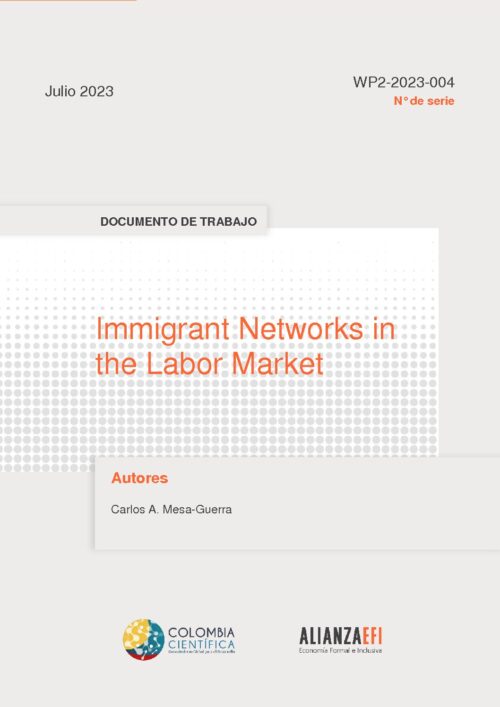Using unique survey data linked to social security records and the large influx of Venezuelan immigrants to Colombia in recent years, this paper provides evidence on the empirical relationships between referral networks and labor market outcomes of immigrants by focusing on the spatial dimension of social interactions. By explicitly accounting for both the urban and the social space, this paper provides new insights for the mismatch between the residential location and labor outcomes of immigrants. Referrals are a critical source for information about available jobs for immigrants, particularly for recent arrivals, but struggle to improve the quality of the match between firms and workers. The misalignment between where immigrants live and where they can find suitable employment opportunities, reinforces the occupational downgrading and increases the persistence of informal employment.
Palabras clave:
- Immigration
- Informality
- labor outcomes
- referrals
- social interactions
Categorías:
- Proyecto 2
- Documentos de trabajo
